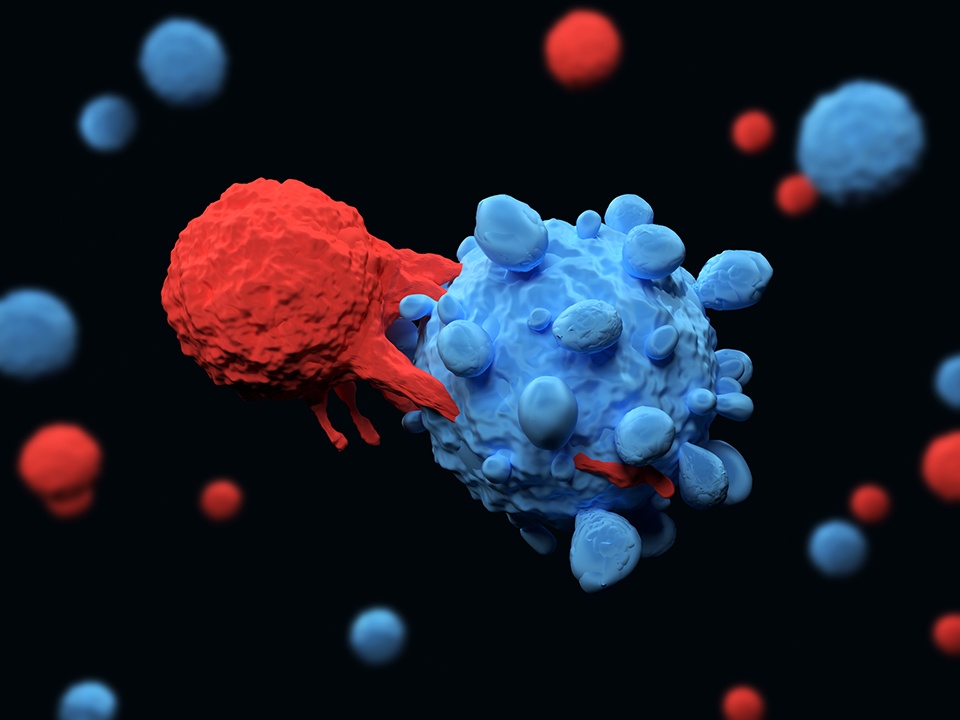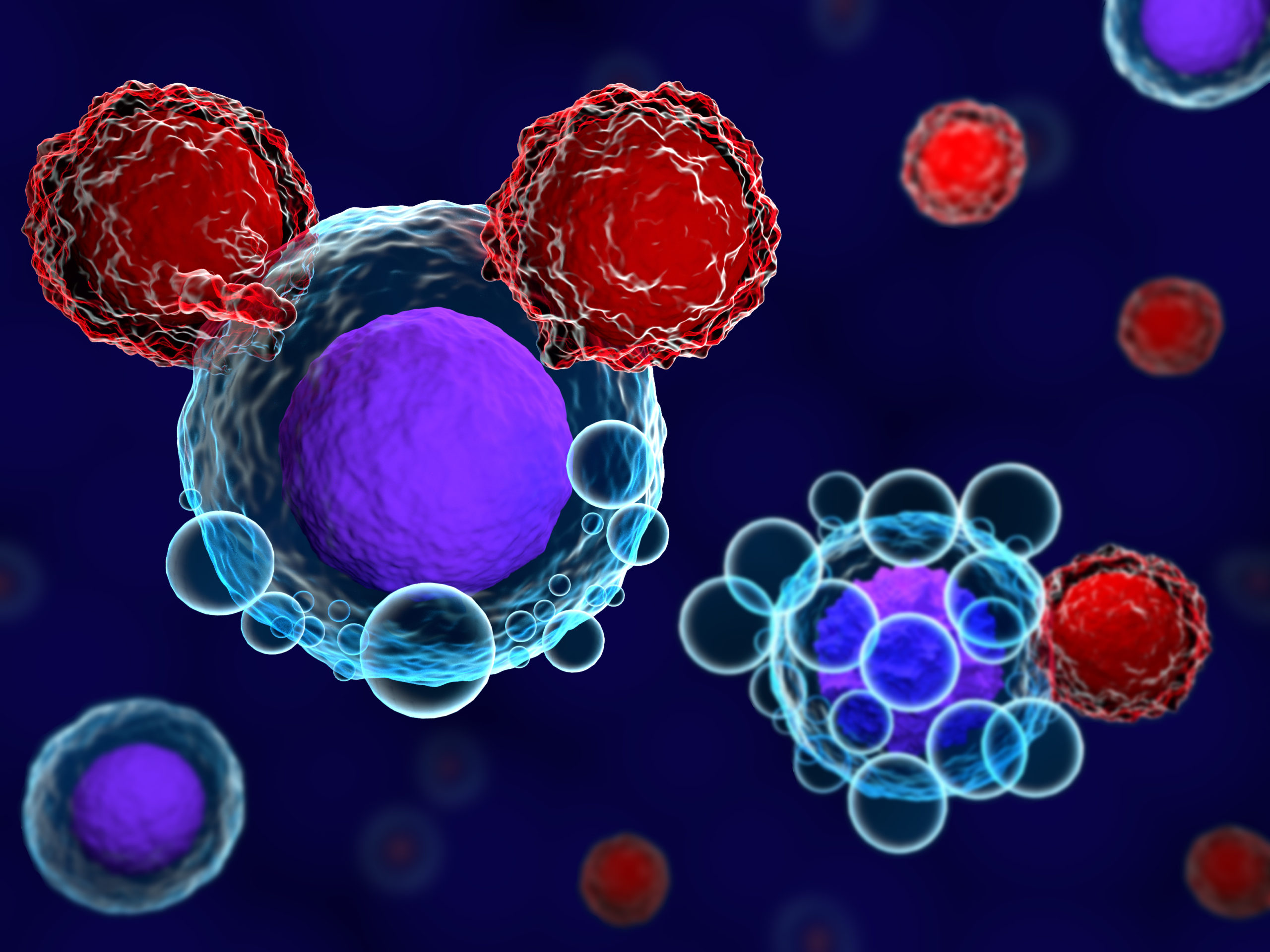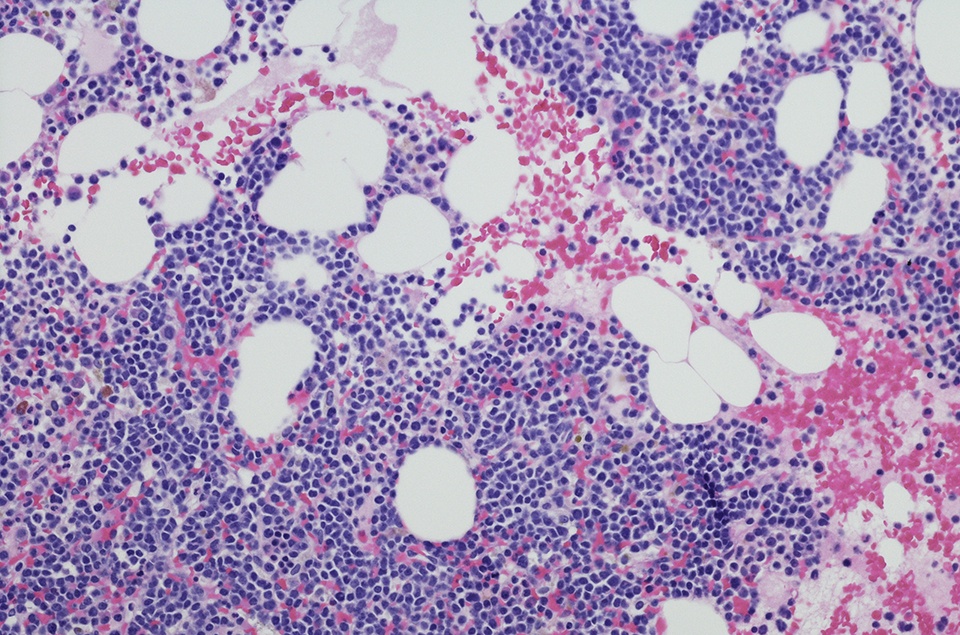
For patients with chronic myeloid leukemia (CML), treatment with tyrosine kinase inhibitors (TKIs) has increased the rates of survival and response over previously available therapies, to the point where life expectancy of people with CML is close to that of the general population. If patients are able to achieve long treatment-free remissions, treatment cessation may be a realistic goal, according to researchers from the European Stop TKI (EURO-SKI) study. The findings were presented by lead author Francois-Xavier Mahon, MD, PhD, from the Hematology Department at the Institut Bergonié in Bordeaux, France, at the 2021 American Society of Hematology Annual Meeting.
In the EURO-SKI trial, the primary outcomes of interest were molecular recurrence-free survival (MRecFS) and molecular recurrence- and treatment-free survival (MRecTFS) after TKI cessation in a large European cohort and defining prognostic markers to increase rates of durable, deep molecular responses (DMR) after stopping TKI. Eligible EURO-SKI participants had chronic-phase CML, had taken TKIs for at least three years without treatment failure, and had a documented major molecular response (MMR; defined as >0.1% BCR-ABL1 transcripts on the International Scale) for at least one year. Interim analysis of the first 200 patients enrolled found a six-month MMR of 62%, and DMR duration before TKI stop was most predictive factor for maintenance of MMR.
With the final analysis, investigators planned to monitor patients for 36 months and assumed a null hypothesis that rates of MMR maintenance at six and 36 months were ≤40% and ≤35%, respectively.
Between May 2012 and December 2014, 868 patients were pre-registered by 61 centers from 11 countries. Exclusion criteria left 728 eligible patents. The median duration of TKI treatment was 7.5 years (range = 3.0-14.1 years) and median duration of MR4 before TKI cessation was 4.7 years (range = 1.0-13.3 years). Nine patients died without losing MMR, but none of the deaths were judged to be CML-related. Fifteen patients restarted TKI without MMR loss.
At six months, 713 patients were evaluable, after excluding patients without a molecular test at six months or who restarted TKIs without relapse. Because the relapse-free survival rate during the first six months was 61%, the null hypothesis was rejected (p < 0.0001), the authors reported. The null hypothesis was also rejected at 36 months, when 309 patients (46%) were found to be in MMR.
Approximately 48% of patients experienced MRecFS at 36 months, and the rate of MRecTFS was 46%. No blast crises occurred, according to the researchers.
“Regarding prognostic factors, we confirmed that TKI treatment duration and DMR duration were still the most important factors to predict MMR loss at six months,” Dr. Mahon and colleagues wrote. “For the late recurrence (i.e., between 6 and 36 months, which occurred in 57 patients), TKI treatment duration before stop was the only relevant variable in a preliminary univariate logistic analysis.”
This report represents the final analysis of the largest treatment-free remission trial and appeared to confirm that the MRecFS and MRecTFS rates at six months observed in previous interim analyses were maintained at three years. However, the authors suggest that, given that 15% of patients experienced a late molecular recurrence between six and 36 months, research into the underlying mechanisms of late recurrence is warranted.







 © 2025 Mashup Media, LLC, a Formedics Property. All Rights Reserved.
© 2025 Mashup Media, LLC, a Formedics Property. All Rights Reserved.